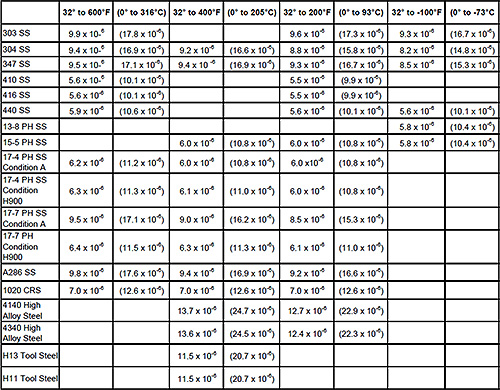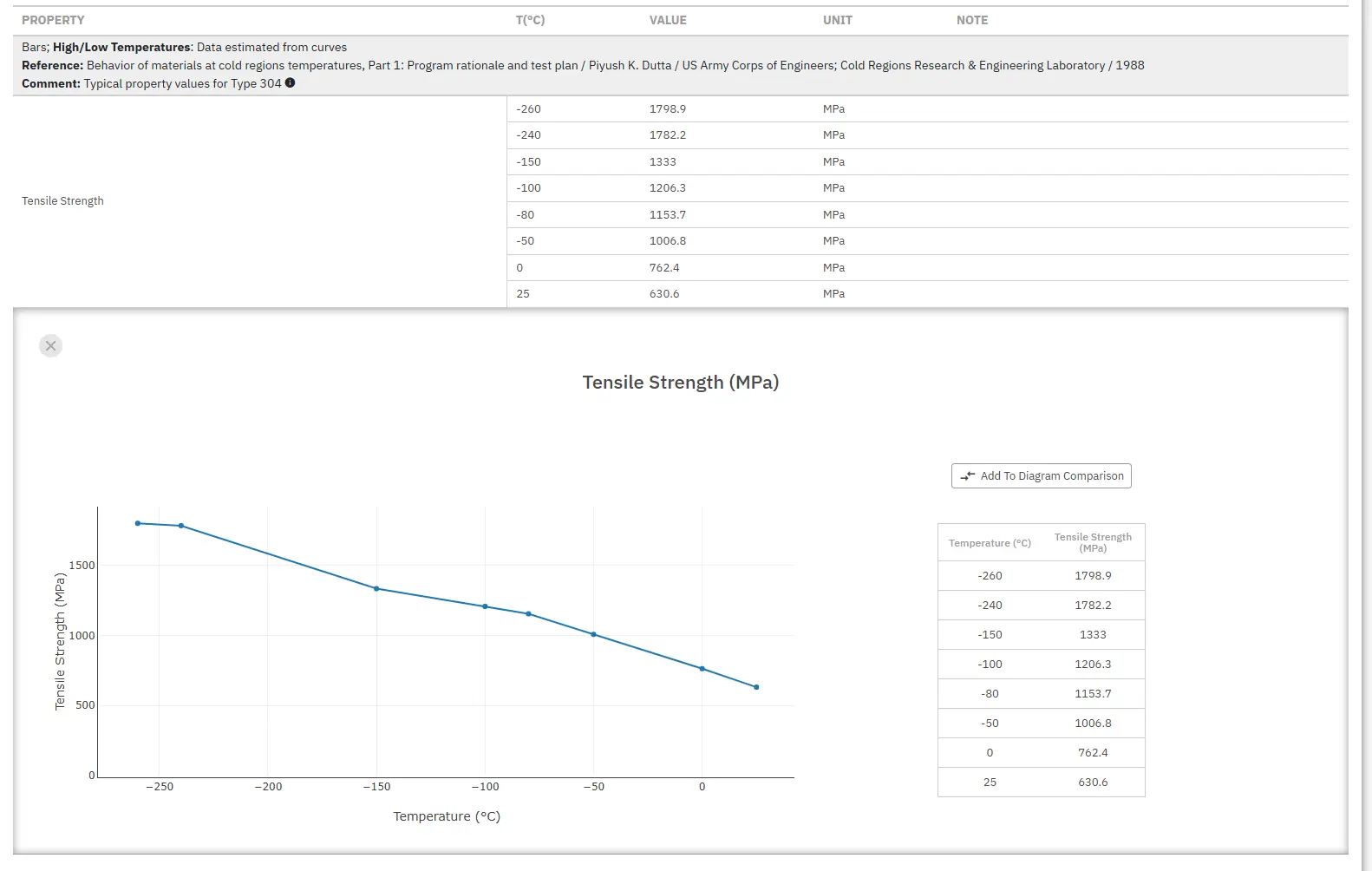Thermal Expansion of Stainless Steels
Abstract
The coefficient of thermal expansion effectively measures the rate of the material expansion as a function of temperature.
This is a critical measure of the material where the application infers heating and remaining at a fixed dimension for any period of time.
The coefficient of linear thermal expansion (CTE, CLTE, α, or α1) is a material property that is indicative of the extent to which a material expands upon heating. Different substances expand by different amounts. Over small temperature ranges, the thermal expansion of uniform linear objects is proportional to temperature change. Thermal expansion finds useful application in bimetallic strips for the construction of thermometers but can generate detrimental internal stress when a structural part is heated and kept at constant length.
To determine the thermal expansion coefficient, two physical quantities (displacement and temperature) must be measured on a sample that is undergoing a thermal cycle. Three of the main techniques used for CTE measurement are dilatometry, interferometry, and thermomechanical analysis. Optical imaging can also be used at extreme temperatures. X-ray diffraction can be used to study changes in the lattice parameter but may not correspond to bulk thermal expansion.
The coefficient of thermal expansion is used to determine the rate at which a material expands as a function of temperature. CTE is used for design purposes to determine if failure by thermal stress may occur. Understanding the relative expansion/contraction characteristics of materials is important for application success. The CTE values are of considerable interest to design engineers. Plastics tend to expand and contract anywhere from six to nine times more than metals. The thermal expansion difference develops internal stresses and stress concentrations in the polymer, which allows premature failure to occur. The coefficient of thermal expansion is defined as the change in length or volume of a material for a unit change in temperature. The overall coefficient is the linear thermal expansion (in.) per degree Fahrenheit or Celsius. The CTE data is calculated by the change in length divided by the quantity of the length at room temperature, multiplied by the change of temperature.
Thermal conductivity is different among the metallurgical categories of steels as showed in Table 1.

Table 1:Coefficient of Thermal Expansion for Various steel grades at different temperatures
Access Precise Properties of Stainless Steels Now!
Total Materia Horizon contains property information for 120,000+ stainless steels: composition, mechanical and physical properties, nonlinear properties and much more.

Get a FREE test account at Total Materia Horizon and join a community of over 500,000 users from more than 120 countries.